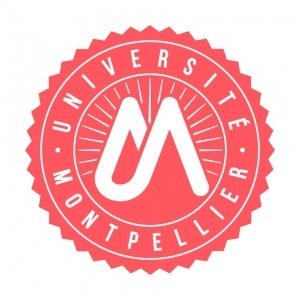Photos of university
Advanced Spectroscopy in Chemistry is a highly specialized postgraduate program offered at the University of Science and Technology of Lille. Designed for students seeking to deepen their understanding of modern spectroscopic techniques, this program provides rigorous training in the theoretical and practical aspects of various spectroscopic methods used in chemical analysis and research. Throughout the course, students explore the principles and applications of advanced spectroscopic tools such as Nuclear Magnetic Resonance (NMR), Mass Spectrometry (MS), Infrared (IR) spectroscopy, Ultraviolet-Visible (UV-Vis) spectroscopy, and Raman spectroscopy, among others. The curriculum emphasizes both the scientific foundations and the technological innovations that drive current developments in chemical spectroscopy.
Participants have the opportunity to engage in hands-on laboratory sessions, where they learn how to operate state-of-the-art instrumentation, interpret complex spectroscopic data, and integrate multiple techniques for comprehensive analysis of chemical substances. The program also covers data processing, quantitative analysis, and troubleshooting, preparing students for careers in research laboratories, industry, or academic settings. In addition to technical skills, the course promotes critical thinking, problem-solving, and scientific communication, enabling graduates to contribute effectively to advancements in chemical sciences.
The program benefits from the university’s strong collaborations with research institutions and industry partners, providing students with exposure to real-world applications and current challenges in spectroscopy. It is suitable for students with a background in chemistry, chemical engineering, or related fields who wish to specialize further in spectroscopic methods. Graduates of the Advanced Spectroscopy in Chemistry program will be equipped with advanced knowledge and practical expertise to excel in research, development, quality control, or innovation roles within the chemical sector.
The Advanced Spectroscopy in Chemistry (ASC) program at the University of Science and Technology of Lille offers a comprehensive and specialized curriculum designed to equip students with in-depth knowledge and practical skills in the field of modern spectroscopic techniques. This program aims to prepare students for careers in research, industry, and innovation by providing a rigorous education in the principles, instrumentation, and applications of various spectroscopy methods. Throughout the course, students will explore a wide range of spectroscopic techniques, including nuclear magnetic resonance (NMR), mass spectrometry, infrared (IR) and Raman spectroscopy, UV-Visible spectroscopy, and advanced imaging techniques. The curriculum combines theoretical lectures with hands-on laboratory experience, allowing students to develop proficiency in instrument operation, data analysis, and interpretation of complex spectra.
Students enrolled in the ASC program will gain a strong foundation in physical chemistry, analytical chemistry, and instrumentation. The program emphasizes research-oriented learning, encouraging students to engage in projects that address real-world scientific challenges. Collaborative work with faculty researchers provides opportunities to participate in cutting-edge research activities, fostering innovation and critical thinking skills. Furthermore, the program includes modules on recent technological advancements, such as spectroscopic imaging and multi-technique approaches, to ensure graduates are well-versed in the latest trends and tools in the field.
In addition to technical training, the program emphasizes professional development, including scientific communication, publication writing, and presentation skills, preparing students for successful careers in academia, industry, and government laboratories. Graduates will be equipped to design, execute, and interpret complex spectroscopic experiments, making them valuable assets in various sectors such as pharmaceuticals, materials science, environmental analysis, and nanotechnology. With an international perspective, the program also offers mobility opportunities and collaboration with global research institutions, broadening students’ academic and professional horizons. By completing the ASC program, students will be positioned as experts in spectroscopic techniques, capable of contributing innovative solutions to scientific and industrial challenges.
The Advanced Spectroscopy in Chemistry (ASC) program at the University of Science and Technology of Lille requires applicants to possess a relevant undergraduate degree in chemistry, materials science, or a related field from an accredited institution. Admission is competitive and based on academic excellence, motivation, and relevant laboratory experience. Prospective students must submit a completed application form, academic transcripts, a CV detailing research and technical experience, a motivation letter explaining their interest in advanced spectroscopy techniques, and letters of recommendation from previous professors or professional supervisors. Proficiency in English is mandatory, with a minimum TOEFL score of 90 or an equivalent IELTS score, unless the applicant’s prior education was conducted in English. The program is designed for students who have a solid foundation in general chemistry, physical chemistry, and laboratory methods. Prior exposure to spectroscopy techniques such as NMR, IR, UV-Vis, or mass spectrometry may be advantageous. The curriculum combines theoretical coursework with practical laboratory work and research projects. To complete the program successfully, students must earn a minimum of 120 ECTS credits over an academic year, which includes coursework, laboratory experiments, and a master's thesis. Coursework covers advanced spectroscopic methods, data analysis, instrumentation, and applications in chemistry and materials science. Students are expected to participate actively in seminars, workshops, and research conferences. The program emphasizes independent research, critical analysis, and scientific communication. Successful graduates will be equipped with specialist knowledge in spectroscopy techniques and their applications in solving complex chemical problems, preparing them for careers in research, industry, or academia. The program also offers opportunities for internships, collaborations with research laboratories, and participation in scientific publications. Accreditation and recognition are aligned with European higher education standards, ensuring graduates are competitive in the international job market.
The financing of the Advanced Spectroscopy in Chemistry (ASC) program at the University of Science and Technology of Lille is primarily based on a combination of tuition fees, government grants, and research funding. Tuition fees are determined by whether the student is a domestic or international applicant, with EU students benefiting from subsidized rates due to the French higher education system, and international students paying higher tuition fees aligned with the university's regulations. The university offers various scholarships and financial aid options to support students financially, which can include merit-based scholarships, need-based aid, and mobility grants for international students participating in exchanges. In addition to formal funding sources, many students benefit from assistantships, research assistantships, and internships funded by research projects or industry partnerships, which can offset costs and provide valuable professional experience. The university actively encourages students to pursue external funding opportunities, including French government scholarships such as the Eiffel Scholarship for international students, and grants from European organizations like Erasmus+. The program's emphasis on research in spectroscopy and chemistry attracts substantial funding from national research agencies such as CNRS and INRA, which often support student involvement through grants and stipends. Overall, students enrolled in the ASC program can access a diverse range of financial resources designed to facilitate their academic progression while minimizing financial barriers. The university's commitment to supporting student financing reflects its recognition of the importance of accessible advanced education in spectroscopy and chemistry, fostering a highly qualified workforce capable of contributing to scientific innovation and technological development.
The Advanced Spectroscopy in Chemistry (ASC) program at the University of Science and Technology of Lille offers students a comprehensive and specialized education in the field of spectroscopy as applied to chemical analysis. This program is designed to provide both theoretical knowledge and practical skills in advanced spectroscopic techniques, including NMR, mass spectrometry, infrared and Raman spectroscopy, UV-Vis spectroscopy, and other analytical methods essential for modern chemical research and industry applications.
The curriculum emphasizes a multidisciplinary approach, integrating principles of physics, chemistry, and instrumentation technology. Students will learn how to design experiments, interpret complex spectroscopic data, and troubleshoot instrumentation issues. The program aims to prepare graduates for careers in research laboratories, pharmaceutical companies, environmental agencies, and other sectors where advanced analytical techniques are essential.
Throughout the program, students engage in laboratory work, projects, and internships that foster hands-on experience with state-of-the-art spectroscopic equipment. They also develop skills in data analysis, software applications related to spectral data processing, and scientific communication. The program stresses the importance of innovation and technological development in spectroscopy, encouraging students to participate in research projects that push the boundaries of current analytical capabilities.
The program is typically structured over one year of full-time study and is suitable for students holding a bachelor’s degree or equivalent in chemistry, physics, or related disciplines. Graduates of the ASC program will be well-equipped to pursue careers in research and development, quality control, and analytical consultancy, or to continue their academic journey towards postgraduate studies.
In addition, the university maintains collaborations with industry partners and research institutions, providing students with valuable networking opportunities and exposure to real-world applications of spectroscopy in various scientific and industrial contexts. The program also emphasizes scientific ethics, safety standards, and sustainable practices in analytical chemistry.
Overall, the Advanced Spectroscopy in Chemistry program at the University of Science and Technology of Lille prepares students to be experts in spectroscopic techniques, capable of contributing to scientific developments and technological innovations in the field of analytical chemistry.










